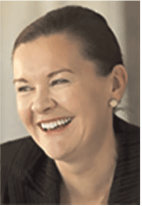Bias blockers and resilience builders
Petrina CoventrySantos Ltd.
The APPEA Journal 55(2) 426-426 https://doi.org/10.1071/AJ14061
Published: 2015
Abstract
This extended abstract shares research factors that affect gender equity in the workplace, along with subsequent workplace interventions that have been trialed at Santos to address the research findings.
A collaborative initiative between several leading universities and companies across a range of industries was established to identify challenges associated with gender representation in the workforce. A number of key research areas were focused on, including bias and its effects on gender equity, resilience in the workplace, and factors that affect retention and attrition of women in the workplace.
Findings
Unconscious and conscious bias needs to be tackled directly and through open intervention. Bias in manifested in judgements and decision-making that affect women’s working conditions. Removing biased decision-making through awareness programs, education and direct challenge has a positive impact on diversity and productivity.
Resilience builders can differ by gender. Interventions in the workplace to build resilience for women need to include confidence building. Successful women can suffer confidence crises as often as less successful women. Women are more likely to establish the confidence needed to be resilient in organisations when there is a culture of psychological flexibility.
This extended abstract will share the application of the research findings to the Santos workplace. For example, how decision making and bias training at Santos has assisted a broad range of disciplines, and what effect resilience-building strategies have had on productivity and culture.

Petrina Coventry is an executive director with Santos Ltd, a global oil and gas producer listed on the Australian Securities Exchange (ASX Ltd). She has a bachelor’s degree in education, a master’s in philosophy (ethics), a master’s in business administration and an executive master’s in business administration. Based in Singapore since 2007, Petrina has spent more than 20 years working in Asia, the United States and Europe performing global leadership roles with The General Electric Company, The Coca Cola Company and Proctor and Gamble. Her domain expertise covers multiple industry sectors including energy, oil and gas, education, fast-moving consumer goods and financial services. Her work in transformation and change, performance drivers, organisation design and human capital planning has led to increased involvement with governments, industry associations and consulting groups across Asia and other regions. Petrina is an ethicist and is completing her PhD with Melbourne University. She is chair of Adelaide University Business School and a member of the University College London (Australia) academic council. She has also developed curriculum and lectured for University of South Australia and the Centre for Ethics and Leadership attached to Melbourne University. Petrina was appointed as a Vincent Fairfax Fellow (VFF) in 2011, a Fellow of the Australian Human Resource Institute (AHRI) in 2012, and a Fellow of the Australian Institute of Company Directors (AICD) in 2014. She is also a non-executive director of AHRI, a non-executive director of the Australasian Association of Philosophy (AAP) and has been a member of the World Economic Forum Partnering against Corruption Initiative (PACI) since 2010. |
References
Bal, A.C., Reiss, A.E., Rudolph, C.W., and Baltes, B.B. (2011). Examining positive and negative perceptions of older workers: a meta-analysis. The Journals of Gerontology, Series B: Psychological Sciences and Social Sciences 66, 687–98.Bargh, J.A., 1994—The four horsemen of automaticity: Awareness, intention, efficiency, and control in social cognition. In: Wyer, R.S Jr. and Srull, T.K. (eds.) Handbook of social cognition, Volume 1: Basic processes, 2nd edition. New Jersey, USA: Erlbaum.
Beltman, S., Mansfield, C., and Price, A. (2011). Thriving not just surviving: A review of research on teacher resilience. Educational Research Review 6, 185–207.
Beutel, M.E., Glaesmer, H., Decker, O., Fischbeck, S., and Brahler, E. (2009). Life satisfaction, distress, and resiliency across the life span of women. Menopause 16, 1132–8.
Cabrera, E.F. (2007). Opting out and opting in: Understanding the complexities of women’s career transitions. Career Development International 12, 218–37.
Cabrera, E.F. (2009). Fixing the leaky pipeline: Five ways to retain female talent. People & Strategy 32, 40–5.
Clance, P.R., and Imes, S. (1978). The imposter phenomenon in high achieving women: dynamics and therapeutic intervention. Psychotherapy Theory Research and Practice 15, 1–8.
Genat, A., Sojo, V., and Wood, R., 2012—Evaluation, Bias and Backlash. Centre for Ethical Leadership, Melbourne Business School. Melbourne: The University of Melbourne.
Grant-Vallone, E.J., and Ensher, E.A. (2011). Opting in between: strategies used by professional women with children to balance work and family. Journal of Career Development 38, 331–48.
Hom, P.W., Roberson, L., and Ellis, A.D. (2008). Challenging conventional wisdom about who quits: Revelations from corporate America. Journal of Applied Psychology 93, 1–34.
Lyness, K.S., and Terrazas, J.M.B., 2006—Women in management: An update on their progress and persistent challenges. In: Hodgkinsom, G.P. and Ford, J.K. (eds.) International Review of Industrial and Organisational Psychology 2006, Volume 21. New York: Wiley.
Nelson, D.L., and Burke, R.J. (2000). Women executives: Health, stress, and success. Academy of Management Executive 14, 107–21.
Sojo, V., and Wood, R., 2012—Resilience: Women’s fit, functioning and growth at work: Indicators and predictors. Centre for Ethical Leadership, Melbourne Business School. Melbourne: The University of Melbourne.
Solem, P.E. (2008). Age changes in subjective work ability. International Journal of Ageing and Later Life 3, 43–70.
van den Heuval, M., Demerouti, E., Schaufeli, W.B., and Bakker, A.B., 2010—Personal resources and work engagement in the face of change. In: Houdmont, J. and Leka, S. (eds.) Contemporary occupational health psychology: Global perspective son research and practice, Volume 1. West Sussex: Wiley-Blackwell.
Womenonboards, 2011—ASX 2011. Accessed 15 December 2012. <www.womenonboards.org.au/pubs/bdi/2011/asx.htm>.
Wood, R., 2013—Presentation at Santos, Centre for Ethical Leadership, Melbourne Business School. Melbourne: The University of Melbourne.


